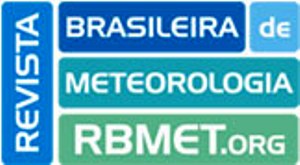The objective of this study was to simulate the development of maize in elevated temperature scenarios at Santa Maria, RS, Brazil. The developmental cycle of maize was simulated with the Wang and Engel (WE) model with genotype-dependent coefficients for the cultivar BRS Missões. The developmental cycle was divided into vegetative phase (from emergence to silking), and reproductive phase (from silking to physiological maturity). Twelve sowing dates throughout the year were considered, resulting in emergences on the day 15 of each month all year round. Climate scenarios used were synthetic time series of 100 years of current climate and with increase in mean air temperature of +1, +2, +3, +4, and +5, with symmetric and asymmetric increases in daily minimum and maximum temperatures. As temperature increased, the number of years in which crop was killed by frost decreased, indicating that if global warming will confirm, the growing season for maize grown in subtropical environment will be longer by the end of this century. Maize vegetative and reproductive development was delayed or hastened depending upon the emergence time of the year, and if the increase in air temperature is symmetric or asymmetric, indicating complex Genotype x Environment interactions and high vulnerability of maize development to climate change.
Development; temperature increase; global warming; climate change; agriculture; IPCC




























